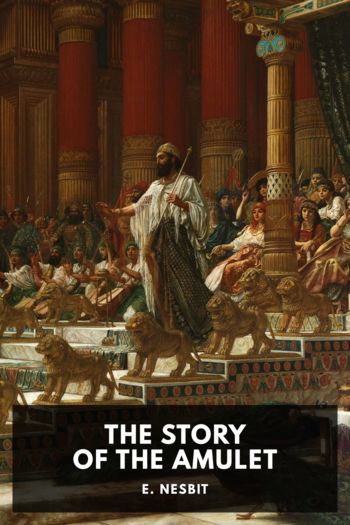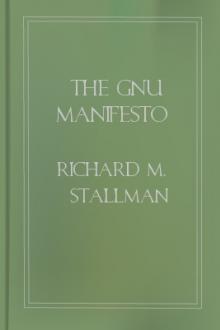Love Story: In The Web of Life, Ken Renshaw [mobi reader android .txt] 📗

- Author: Ken Renshaw
Book online «Love Story: In The Web of Life, Ken Renshaw [mobi reader android .txt] 📗». Author Ken Renshaw
"I guess that is where you come in," Iobserved.
"That is really where the Colson Foundationcomes in. They hired me to write a script for a film that wouldexpose people to higher–dimensional thinking. It is a way, we hope,to bypass the waiting for bastions of old ideas to die or retire inacademia.
"Lets get started," She said with a wide-eyedsmile. "Tell me what you know about higher–dimensional realities.Give me a starting point,"
"I was exposed to the idea that time is anillusion and that reality is like YouTube."
Her eyes grew wide, and she said, "That isreally interesting. I have never heard that analogy before. Pleasego on."
I explained what Uriel had told me about amovie only having an illusion of time. Then, I explained aboutR-Tube.
"That is really good as an analogy. Fromtalking to people who do remote sensing I have found that some havethe belief that information is only accessible in space-time ifthere was a human observer, someone 'recording the R-tube video' soto speak. That relates to the old philosophical riddle, 'If a treefalls in the forest, does it make a sound if there is nobody thereto hear it?' Remote sensors can't observe the tree falling unlesssomebody heard it.
"I like the idea of keyword assignment as partof the accessibility argument. I believe that much of our ownmemory recall may be the accessing of information from space-time.Physiologists haven't identified long term memory mechanisms in thebrain with enough storage capacity to contain all we can recallfrom our lives. If you can recall the time when you were six yearsold and your dog Spot got run over by a car, there may be manykeywords that can move you there in R-Tube: grief, tiresscreeching, dog yelping, screaming, red cars, dirt roads; all thesensory input you experienced at the time can be a keyword. Somewould be stronger that others. The incident would have been ofgreat enough interest to record. However, you probably wouldn't beable to recall feeding Spot his dinner the night before.
"Are you familiar with channeling?"
"Yes, I went to hear a channel last week. Itwas Herondus coming through."
"I am not familiar with him. Maybe long-termmemory recall is a person 'channeling' himself from a differentspace-time. Psychologists and physiologists are beginning to findmechanisms for synchronizing neural activity between people.Experiments have shown that people can synchronize heartbeats, forinstance. Perceptual synchronization is still on the to-do list.The field is stunted because any effects observed at a distance areagainst the old laws of physics.
"That brings me to the central thesis of mywork in mathematics. Normal observation happens with one set oflaws pertaining to four–dimensional physics. Information transferhappens according to complex eight–dimensional physicallaws."
"Nice segue," I observed.
She laughed. "I guess I digress. I am amathematician and not an experimental psychologist.
"Let me start at the beginning. When AlbertEinstein was at the Zurich Polytechnic, a school for training mathand science teachers for secondary schools, his mathematics teacherwas Herman Minkowski who didn't get along with Einstein very wellbecause Einstein wasn't very interested in mathematics and oftencut his classes. Z-Poly was a small school, with only seventy-onestudents, eleven of which were in Einstein's enteringclass.
"Einstein barely graduated because he grewindifferent to the professors and courses offered. Since the headof the department refused to write the letter of recommendationrequired to obtain a teaching job, Einstein was unemployed for acouple of years, until a friend helped him get a job working in theSwiss Patent Office. Then, the hot technical topic for patents wassynchronizing clocks throughout the railroad systems, so that allstations could have the same schedule. Einstein's office windowlooked out on a clock tower and a railroad track.
"Some people who have studied Einstein'sbiography have placed him in the Autism–Asperger's syndromespectrum: that he only could think, or at least was mostcomfortable with visual thinking. When he 'over-thought' the ideaof synchronizing clocks at railroad stations, he came up with hisTheory of Relativity. He could visualize trains traveling near thespeed of light and visualize what would happen to the clocks onboard. Einstein's wife, also a mathematician at Z-poly, helped himin the math of his famous paper on relativity. Some say she didmost of the work of converting the visual thinking to a scientificpaper.
"The paper did not get much attention for acouple of years. Then, Minkowski who knew of Einstein's work,because he was still working on his doctorate, took an interest inthe theory. Einstein had been considering the three-dimensions of'space' separate from' time' in his idea of relativity. Minkowskipointed out that time was also a dimension. He 'corrected' the mathin the paper, in a way to make it compatible with other hot topicsin physics, by making 'time' an imaginary dimension.
"You remember about imaginary numbers?" Iasked.
"Yes, the square root of minus one. To someonelike Einstein who mostly thought in visual pictures, the idea of animaginary number must have been a stretch. How do you visualize atrain traveling at ten miles per (imaginary) second? It doesn'tmake any sense. Where is the train going?"
She laughed and continued, "Minkowski almosthijacked relativity and took it into the realm of mathematics fromEinstein's physics. Minkowski, the mathematician, would have takenit into abstract mathematics where nobody has to visualizeanything, where everything can be formulas. Unfortunately,Minkowski got sick and died.
"Einstein got to keep relativity. He didn'tappreciate Minkowski's mathematical approach, which he described as'too complicated.' He did keep the idea of imaginary time as kindof a dirty little secret in his mathematics. For instance, hecouldn't have come up with his famousE=MC2 without using imaginarytime. That expression wouldn't have become so famous if he hadsaid, '...when time is imaginary,E=MC2' Without Einstein'svisual experiments, which became his hallmark, such as people onrailroad platforms observing trains passing at near the speed oflight, Einstein might not have become famous. His visualexperiments made his ideas accessible to more people."
"Not to me, so far." I added. "I spent most ofthe morning trying to get my head around some of hisconcepts."
"Don't feel bad, you're dealing with a graduatelevel subject that requires lots of course units and a degree inmathematics or physics. The point about talking about all





Comments (0)